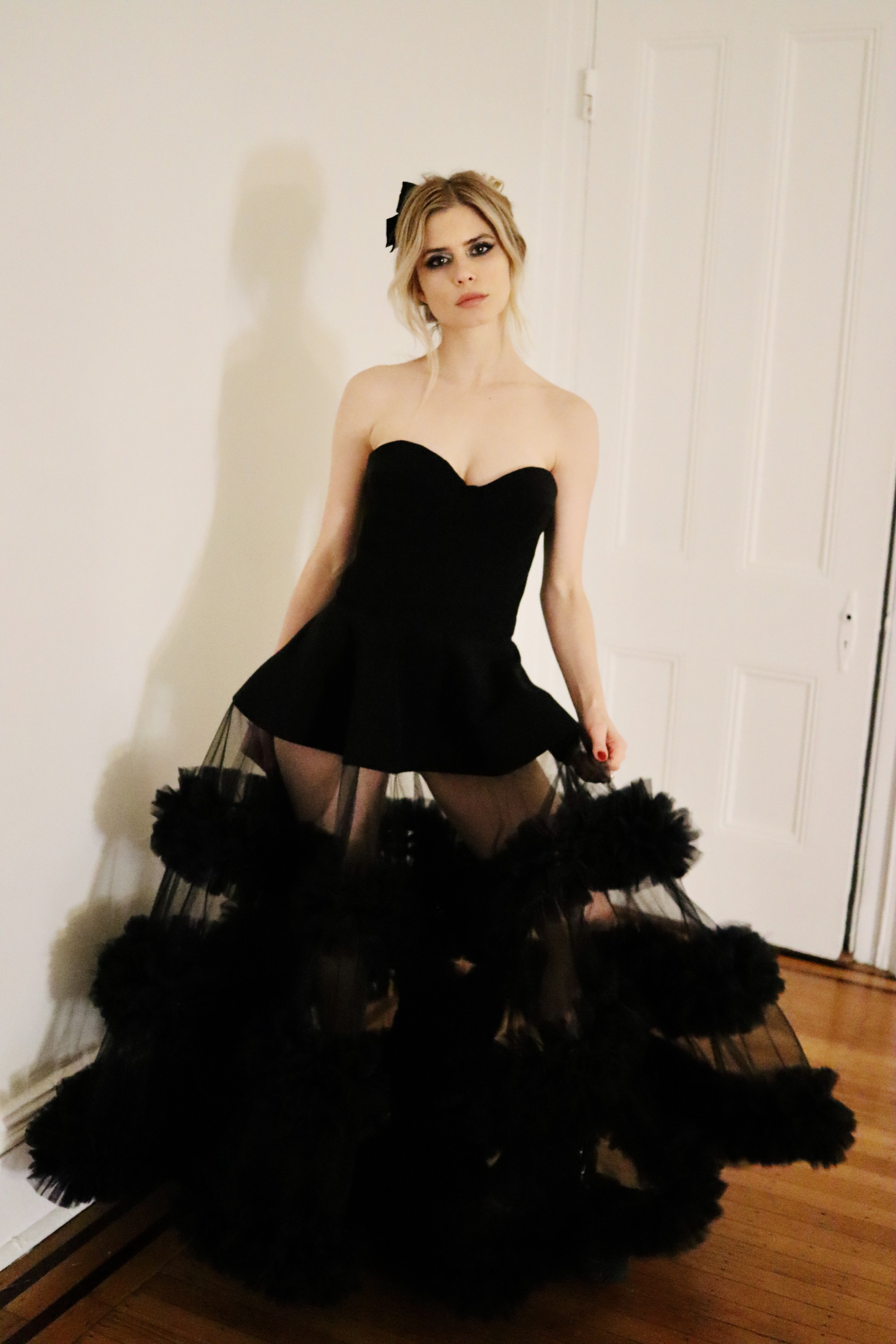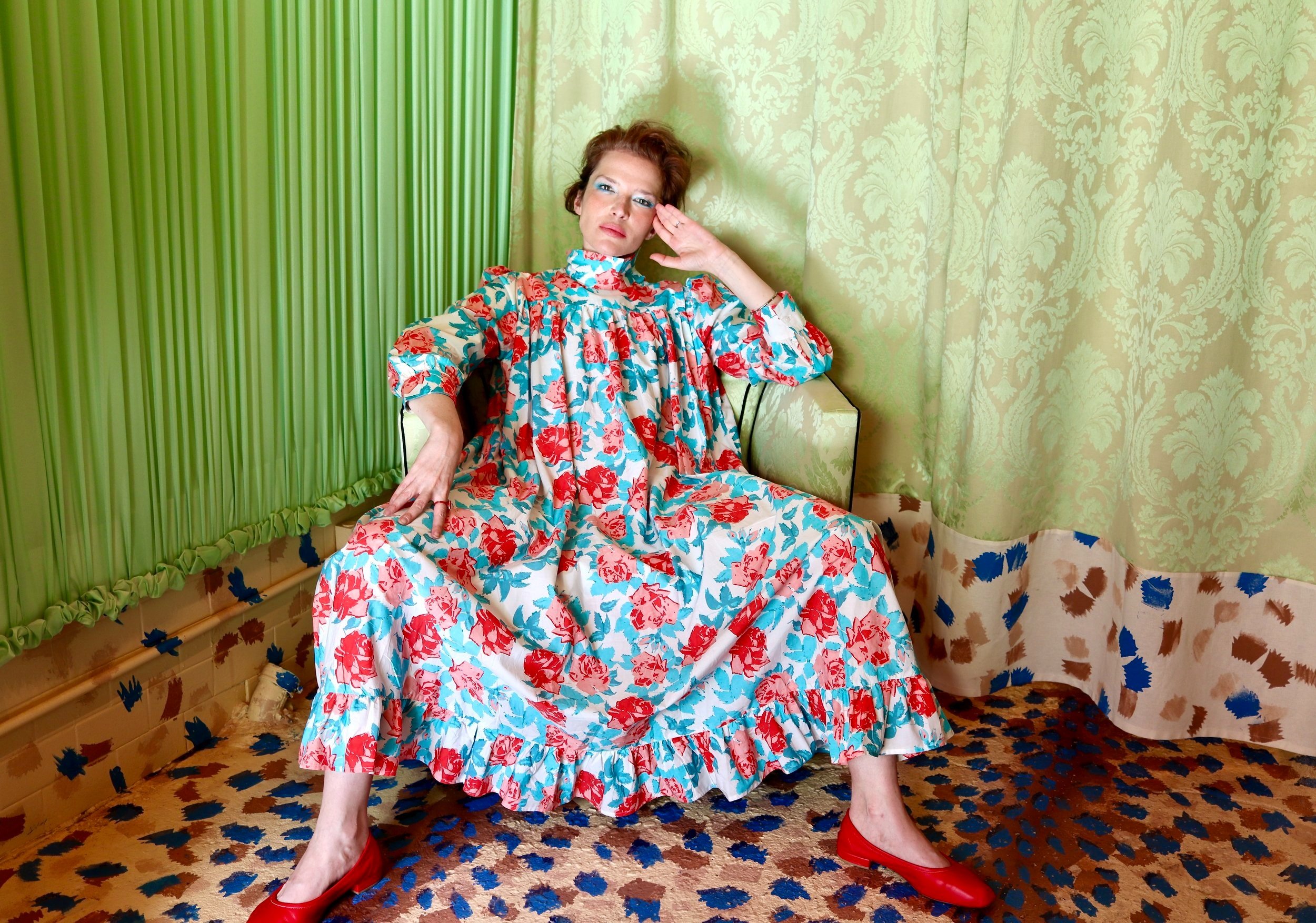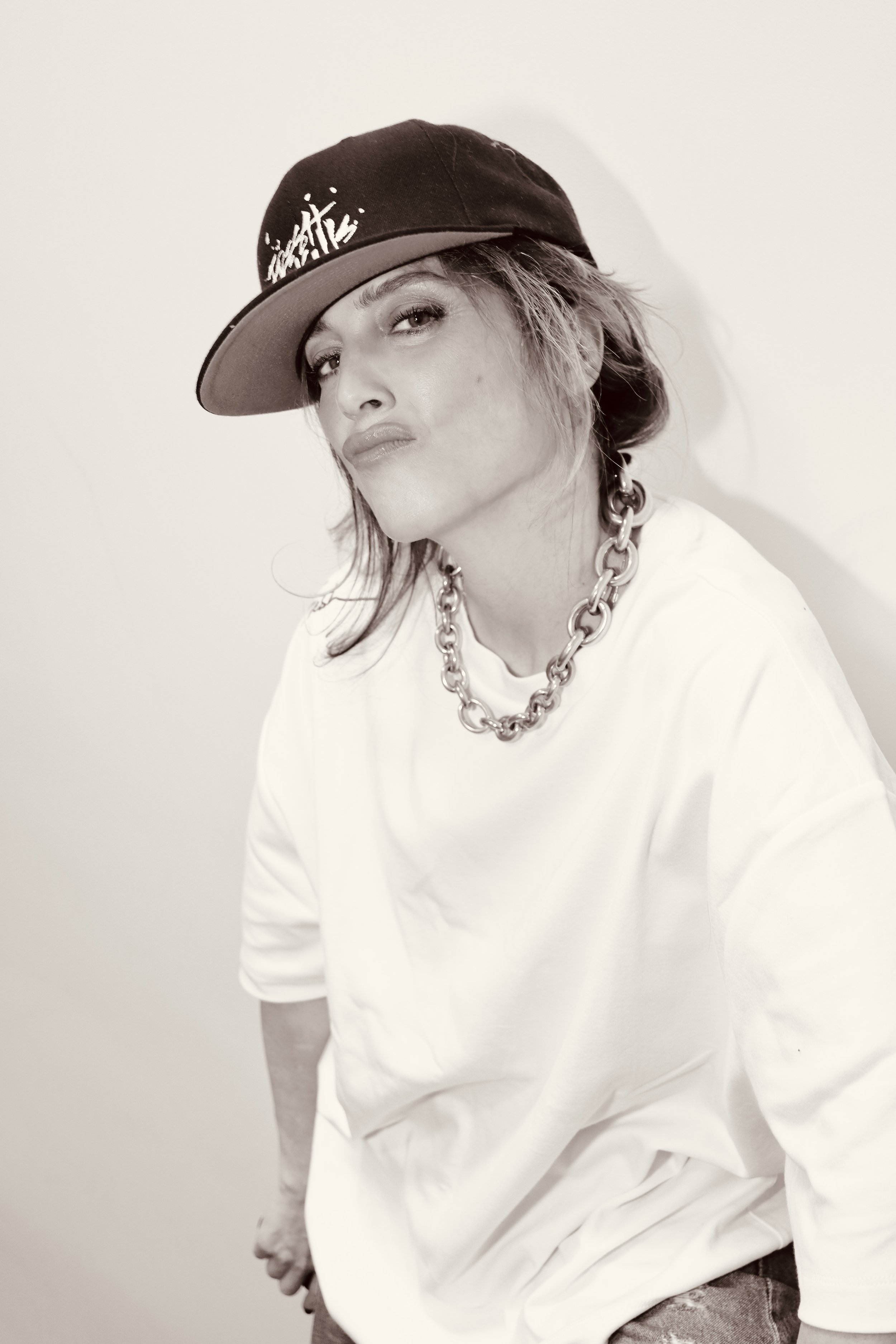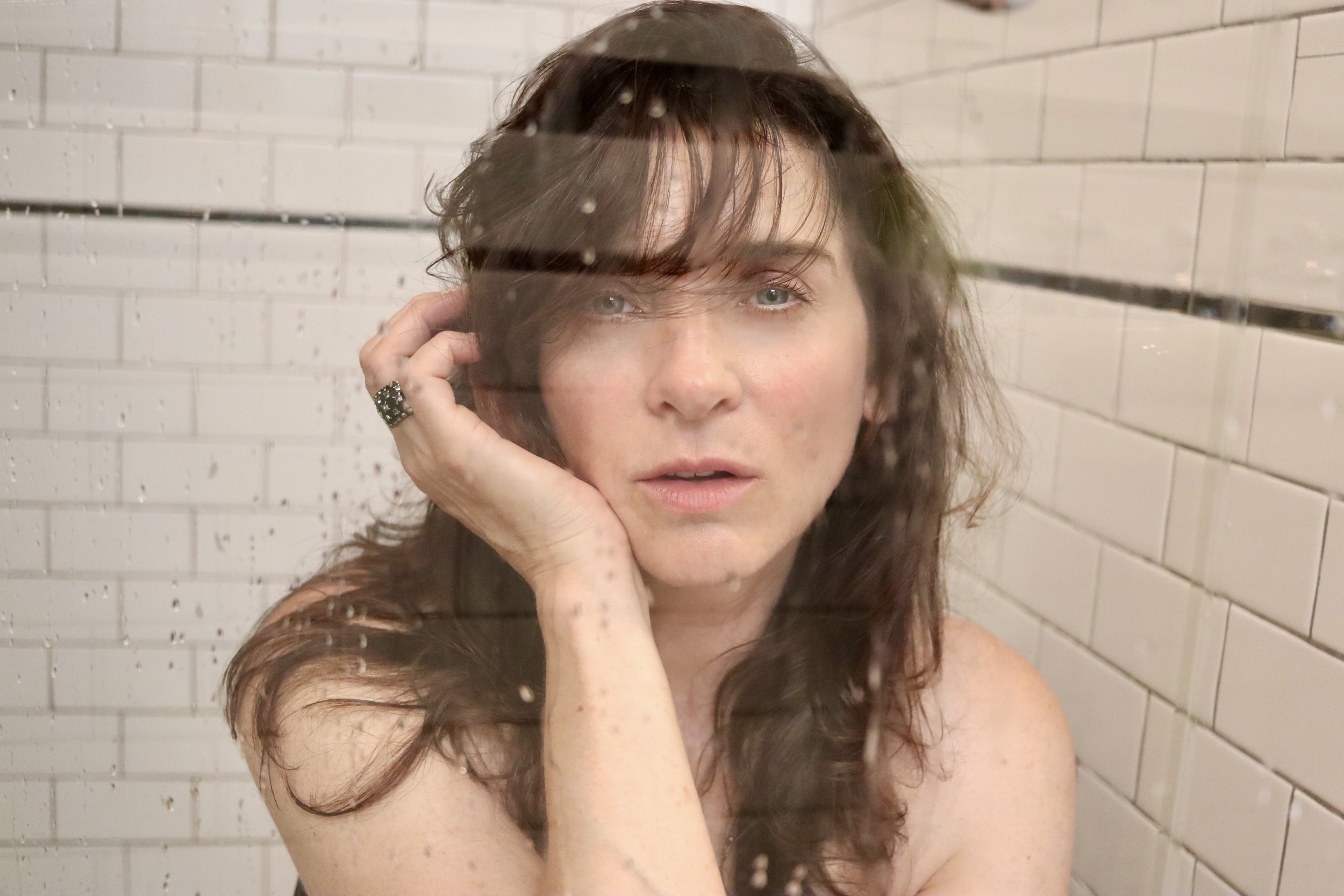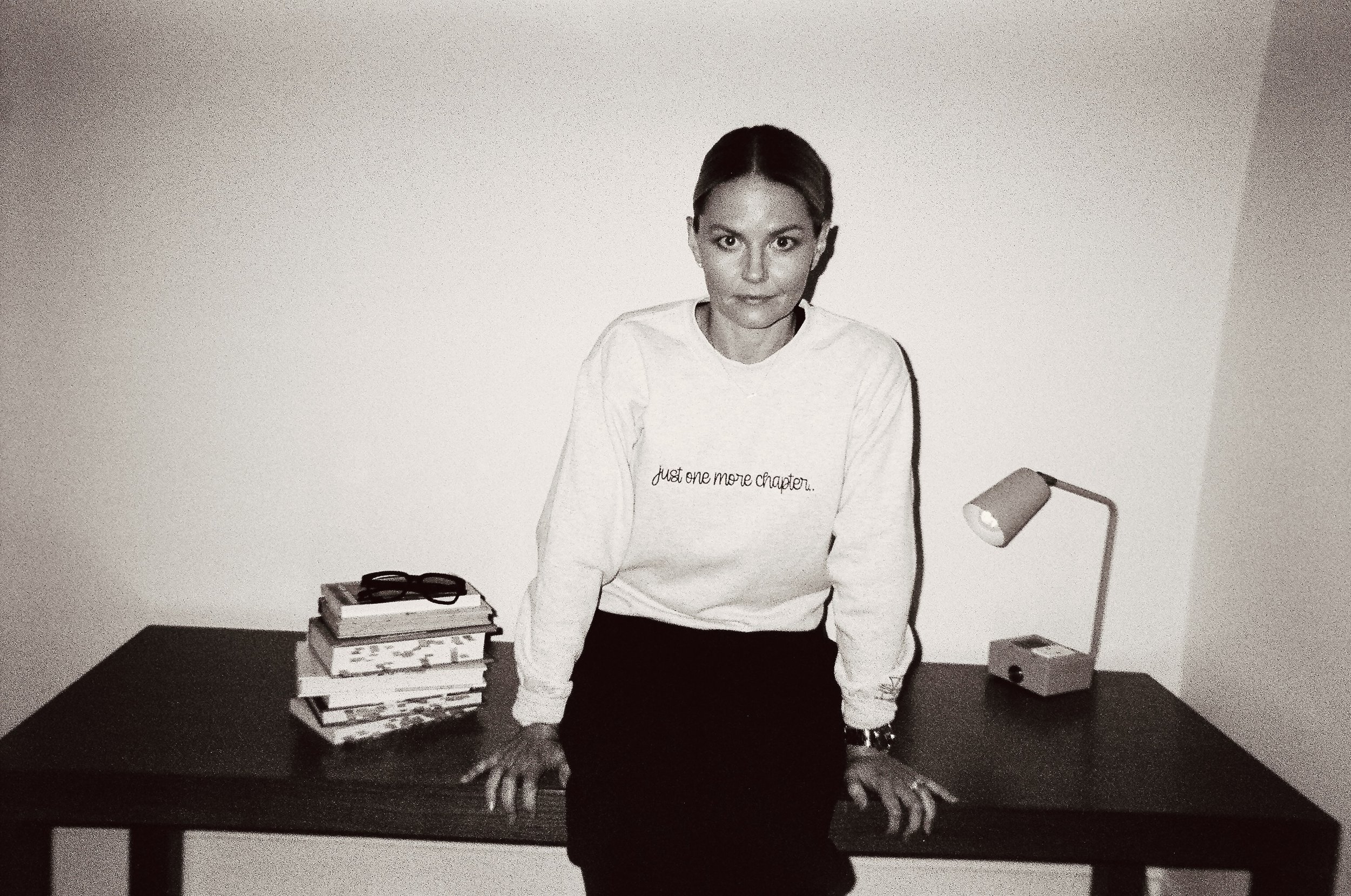Quinn Shephard
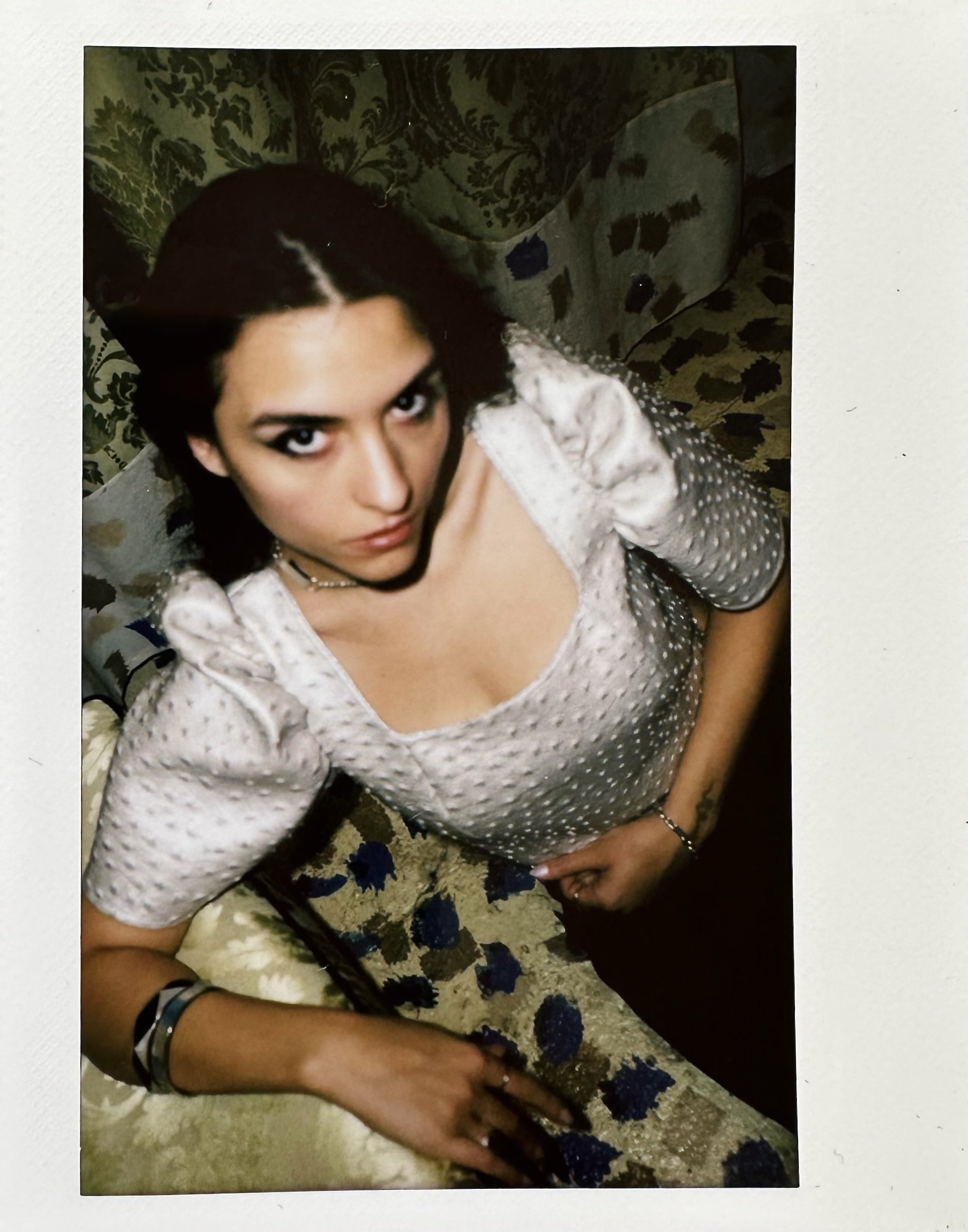
When it comes to the world of film-making, Quinn Shephard was, as she would say, “doomed from the start.” From as young as 13, Shephard found herself up until 3am editing her shorts in a neurotic state of flow – the term she described to BARE as the drunk-like state of mind a writer falls into due to the adrenaline of creating. As she sat with BARE, Shephard talked about the uncharted but ultimately self-fulfilling hurdles that came about from working on her first film Blame, the beauty of collaboration that she experienced with “Under the Bridge” and the themes of privilege she wanted her viewers to both laugh at and self-reflect on with Not Okay. There was nothing short of inspiring witnessing Shephard verbalize the adoration she feels towards her craft – and in classic BARE spirit, she even took the time to share her minimalist yet essential approach towards skin and self-care. Shephard may have been “doomed” from the moment her pen hit the blank page, but we are all better off from it.
The Bare Magazine: You embarked on your film career in front of the screen rather than behind it with one of your first acting roles being at age four in Harrison’s Flowers – can you recall a pivotal moment that made you want to become a director or was it always an interest?
Quinn Shephard: My instincts were always pretty aligned with being a film-maker. From a really young age, I wanted to be a writer. As a kid I would write books instead of paying attention in class and it was just pages of handwritten scribbles of stories. I had a hard time figuring out what I really wanted to do, because I loved so many different art forms. I was passionate about and excited by visual arts, but also writing. I loved to perform, I loved music and felt like I loved everything artistic and didn’t know what to do with that. And so, with film, realizing that I could be the director, and the writer was such a blessing because film is the one medium where you can embrace all art forms – the way that they intersect in film is an artform itself. I started making short films in middle school and thought to myself I’ve never cared about anything so much. I care about [film-making] so much it scares me.
Bare: Apart from the films you made in middle-school, the first film you directed was in 2017 with Blame which was around 7 years ago now – talk me through the process of Blame as you did not just direct, but also acted and funded the production while in college.
QS: It was really an undertaking. I wrote the first draft of the script when I was 15 and it was sort of inspired by my own experiences in high school. I was slightly an eccentric kid who would get hyper-fixated on literature and play characters – I did a production of The Crucible, and I really loved playing Abigail Williams. And that's what this film is about: a girl who takes it way too seriously when she gets cast to play Abigail Williams in the play. It was autobiographical. My mom gave me a lot of notes on the script, and we actually ended up producing the film together. She had managed me as an actor when I was growing up, so it was sort of this natural evolution. But we had a lot of things fall through as it is when you're making a tiny budget movie. People dropped out and bailed, we even had an investor who ghosted us during the production which was what forced this situation of financing the film independently with my college funds. We didn't know that was going to be the case and had no idea what was going to happen, but we were already in production when it went down, and we did not want to stop the moving train.
Bare: Looking back at Blame, what is some advice you’d give yourself 7 years ago when embarking on your film-making career?
QS: To be less hard on myself and not get too caught up in drama while working. I'm actually kind of glad that I stumbled through a lot of things because I think it taught me, so I don't know that I would have gone back and said, “here's all the information you need, skip the part where you learn it.” I'm glad that I had no idea what I was doing and had to learn by being thrown into the fire. I put a lot of my identity into the movie and thought this is something that's going to make sense to me, and only me, because it's so weird and specific. But then, the way that the film was received and the fact that it got me other jobs and agents made me feel so validated where I was like “oh my god people are relating to something I thought only I felt.” That changed me and my confidence so dramatically as a person which tied into when I got my first real job as a writer/director. From then, I just really wanted to focus on film-making, because I loved it more than anything and I thought if I actually can do this, then I don't really need to focus as much on acting because I want to be behind the camera.
Bare: I originally thought that Blame was a solo experience and was going to ask you how that compared to your collaborative experience of working on Under The Bridge with late author Rebecca Godfrey, but still curious to hear how it was to work alongside another creative mind/writer versus independently cultivating an idea and bringing it to life?
QS: There was almost two chapters of Under the Bridge: the period that I was working really closely with Rebecca before she passed, and then the period working with my showrunner and co-writer and merging our brains to bring the show to life through the scripts that would go into production. I've always joked that I love, but struggle with collaboration. I'm somebody who always wants to take the lead on something because I get very stuck in my ways. But I also think that collaboration is the most fulfilling and beautiful part of making films and it's why I don't just want to be a writer and sit in my house all day by myself. Under The Bridge was also not my story to solely tell and by necessity was a story that would have collaborators. Getting to work with the cowriters was such a fulfilling thing for me because it was the first time I had ever been in an environment where you're not just bouncing ideas with one writer, but instead talking to several writers and everyone is throwing a piece of information, idea, or a feeling around the room in circles until it lands. That was so fascinating.
Bare: Not Okay is your film that came out in 2022 and I constantly see different interpretations of how people should understand it but what do you feel like you wanted the biggest take away from the film to be?
QS: I find it really important as a writer to write things that force very uncomfortable self-reflection. For me, Not Okay is sort of a satirical exploration of privilege and the coopting of trauma on the internet that we’re seeing in modern society where people are glamorizing the idea of being a victim and then actually learning the truth of what that is like. Not Okay also challenges you to empathize with the character because I really wanted the audience to be able to put themselves in the lead’s shoes and see themselves in her, especially if they fall into the same demographic as Zoey Deutch. It’s meant to make the viewer slightly uncomfortable, but also hopefully laugh.
Bare: Is there one director you’d love to collaborate with in the future?
QS: Joachim Trier. He directed Thelma andThe Worst Person in the World. He’s my favorite film-maker at capturing the experience of being alive and feeling love and passion in a way of how I experience those things. I’ve been to multiple events that he’s been at, and I was truly starstruck.
Bare: What does your skincare routine look like?
QS: I think I’m into skincare, but I try not to be fanatical about it. I’m very lucky because my mom has incredible skin and raised me to wear sunscreen every single day. I wear SPF 50 every single day from Supergoop which I love so much. Specifically, Sugergoop PLAY which is a waterproof sunscreen and I think it makes my skin look so glowy, I even bought it for my friends and mom. But I think I have a pretty minimal-but-not-nothing skincare routine at night: I’ll do some kind of exfoliant, I have a serum I use, or a tretinoin but a really low amount, a hyaluronic acid, a moisturizer and an oil. I try not to keep it more than that because I also don’t think you need that much.
Bare: What are some self-care rituals you swear by perhaps after a long day of working that helps you wind down?
QS: I think I find it hard when I'm filming to maintain any sort of self-care ritual. When I have time where I'm just writing or when I'm not in as intense of a schedule, I actually kind of like triple my self-care. For me it really starts with mental health. I take a lot of vitamins mainly focused on sleep, health, and stress because those are things that I get really affected by. Mediation is also something I'm really determined to coordinate into my life, and I’ve been trying to meditate on and off for a few years. Recently, I've been getting at least four or five days a week. I’m trying to be an everyday-before-bed meditator. I think one of my big goals for the next few years is figuring out how to keep self-care in my life while I'm working.
Bare: What are your five BARE essentials?
QS:
· Burts Bee’s lip balm
· Le Labo Tonka (travel size so it can go my purse)
· Chewing gum
Photos/Makeup: Tina Turnbow
Quinn wears Batsheva
Interview: Randa Jumean
Thank you Batsheva for hosting us!
Founder & Editor in Chief - The Bare Magazine




